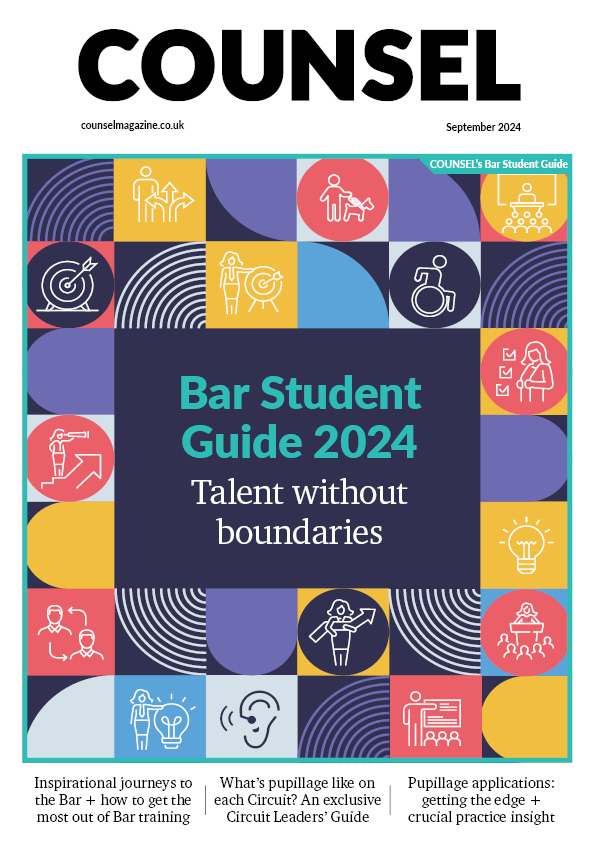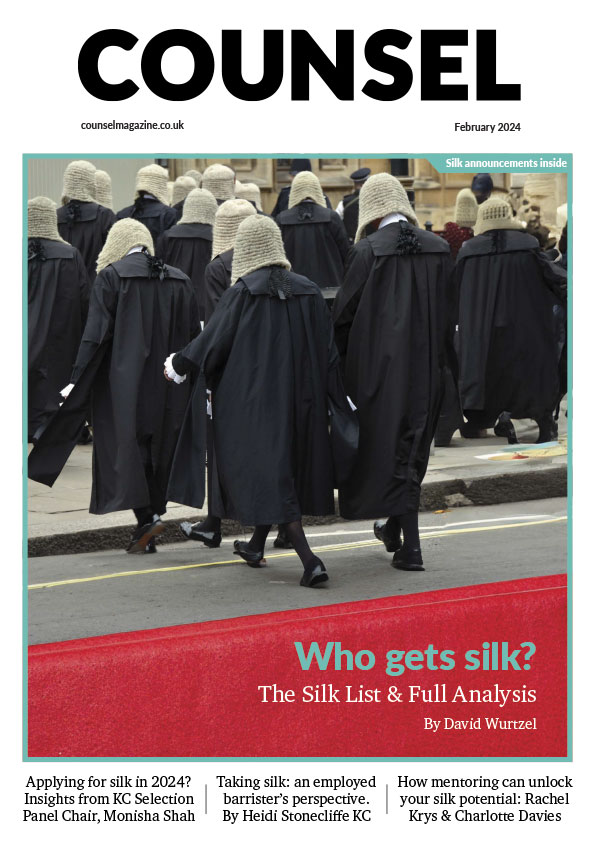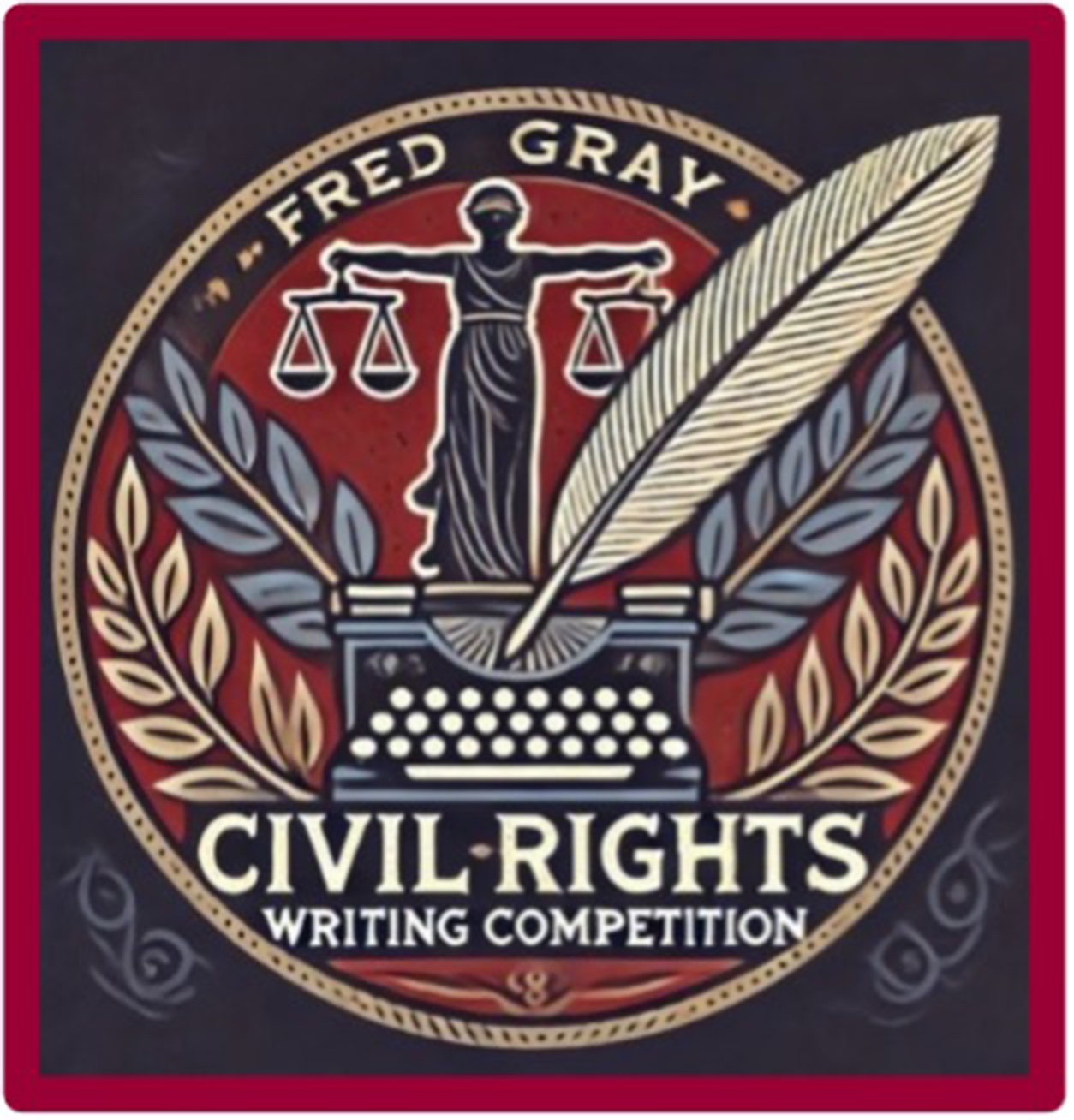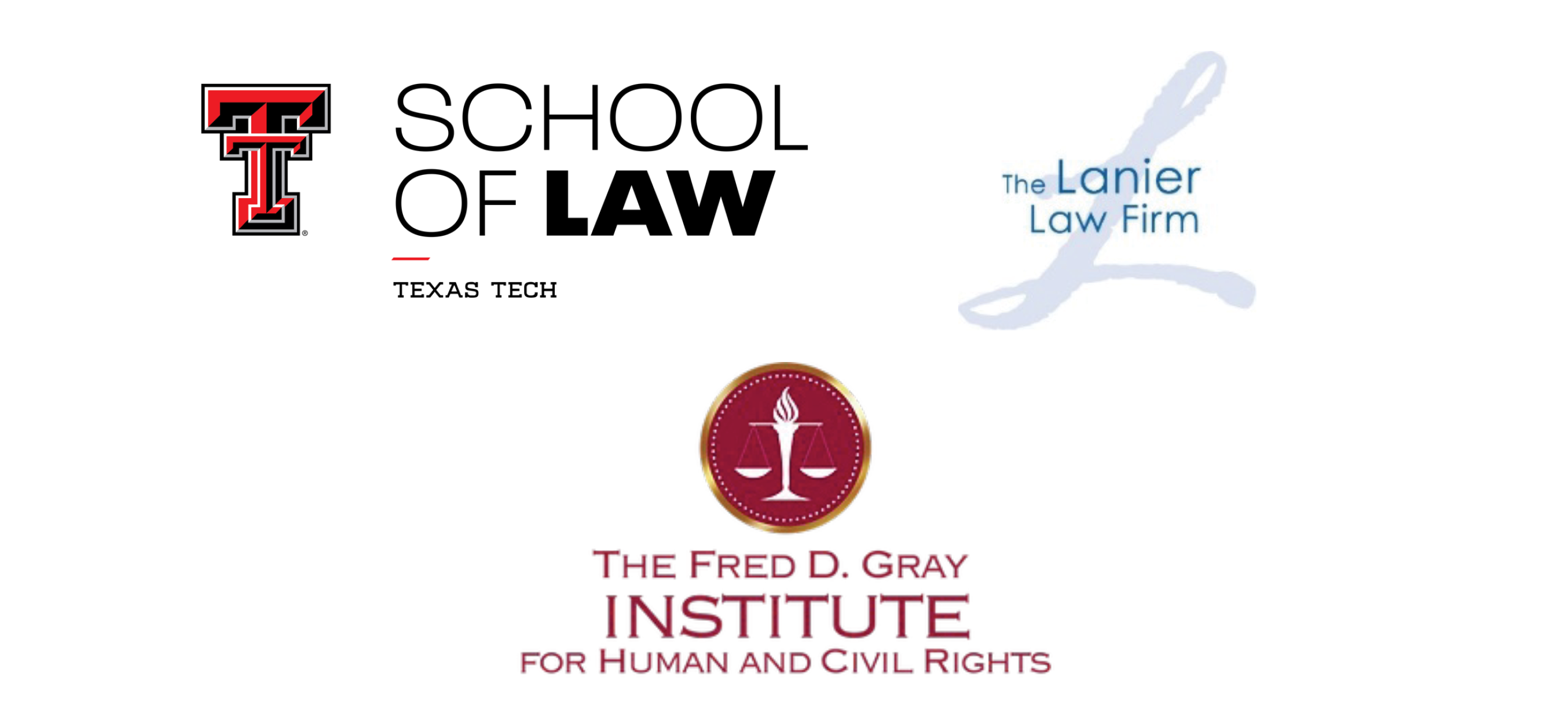

Bar Council’s Law Reform Essay Competition 2024

The winning essay is ‘A fiction of defendant participation: Single Justice Procedure offences should be moved to the civil jurisdiction’ by Hal McNulty
Brief summary
Through the Single Justice Procedure (SJP), defendants have become so marginal in their own criminal trials that it calls into question the state’s compliance with Article 6 of the ECHR.
How and why did you pick this topic?
This past year I have been reading Tristan Kirk’s articles in The Standard in which he tells the stories of people convicted through the SJP. Our criminal justice system is drastically under-resourced and overstretched, so ways to make efficiency savings are very attractive to lawmakers. But the SJP does this by cutting protections for defendants. I wanted to find a way to keep these savings that would not disadvantage the accused.
The full essay is reproduced below.
Issue Extract

Hal McNulty
Hal McNulty is the winner of the Bar Council's Law Reform Essay Competition 2024.
The winning essay is ‘A fiction of defendant participation: Single Justice Procedure offences should be moved to the civil jurisdiction’ by Hal McNulty

Chair’s Column
Looking back and moving on.
Chair of the Bar Sam Townend KC highlights some of the key achievements at the Bar Council this year
Job of the Week

Legal Adviser
By joining the Government of Jersey and wider Jersey Public Services, you'll be proud of what you can achieve – both for yourself and the people of Jersey.

5: Inheritance tax and the next generation
Louise Crush of Westgate Wealth Management highlights some of the ways you can cut your IHT bill
Fast, accurate drug, alcohol & DNA testing
Rachel Davenport breaks down everything you need to know about AlphaBiolabs’ industry-leading laboratory testing services for legal matters
4: Mortgages – helping you up your property ladder
By Louise Crush of Westgate Wealth Management sets out the key steps to your dream property
Representing children in the criminal courts requires specialist knowledge and skills
A centre of excellence for youth justice, the Youth Justice Legal Centre provides specialist training, an advice line and a membership programme
How to maximise your mortgage options as a barrister with fluctuating income
By Kem Kemal of Henry Dannell
Most Viewed
Bsb update on the equality rules consultation.
Mark Neale, Director General of the Bar Standards Board, offers an update on the Equality Rules consultation
Where have all the criminal barristers gone? By Joanna Hardy-Susskind
Joanna Hardy-Susskind speaks to those walking away from the criminal Bar
Should the BSB impose a positive duty to promote diversity?
Imposing a professional obligation to act in a way that advances equality, diversity and inclusion is the wrong way to achieve this ambition, says Nick Vineall KC
Planning reforms under Labour
Tom Cosgrove KC looks at the government’s radical planning reform and the opportunities and challenges ahead for practitioners
SCRAM CAM®: your questions answered
By Ashley Friday of AlphaBiolabs

Latest Cases

- Our Mission
- Our Founder
- Our Leadership
- Our Programs
- Latest News
- Training Events
- Career Opportunities
- Grant Inquiries

Herzog Foundation Announces 2024 Bill of Rights Essay Contest Winners
On the 233 rd anniversary of the United States Bill of Rights ratification, the Herzog Foundation is proud to announce the following winners of the 2024 Bill of Rights essay contest:
- Lillian McCulloch (Classical Consortium Academy – Barrington, IL) – High School Winner
- Harper Mixon (Second Baptist School University-Model – Houston, TX) – Middle School Winner
The Herzog Foundation is also proud to announce the following runners up:
High School Runners Up:
- Adison Kaspar (Kalos Christian Academy – Kansas City, MO) – High School Runner Up
- Lauren Magers (Gloria Deo Academy – Springfield, MO) – High School Runner Up
- Madelyn Schmeisl (Oakland Christian School – Auburn Hills, MI) – High School Runner Up
- Audrey Weibert (Calvin Christian School – Escondido, CA) – High School Runner Up
Middle School Runners Up:
- Benjamin Bandy (New Heights Christian Academy – Joplin, MO) – Middle School Runner Up
- Annabelle Daugherty (Homeschool – Palmyra, TN) – Middle School Runner Up
- Paloma Davis (St. Anthony of Padua School – Falls Church, VA) – Middle School Runner Up
- Kelaiah Hermiller (Calvary Christian School – Bellfontaine, OH) – Middle School Runner Up
- Olen Thompson (L.E.A.D. Academy – Pace, FL) – Middle School Runner Up
- Amelie Sutingco (St. Leo the Great School – Fairfax, VA) – Middle School Runner Up
- Ethan Williams (New Heights Christian Academy – Joplin, MO) – Middle School Runner Up
This year’s contest drew over 600 submissions, a record number, with the majority coming from middle school students. The Herzog Foundation is excited to build upon this growing enthusiasm among young people for understanding America’s foundational documents as we approach the nation’s 250th anniversary in 2026.
“The Bill of Rights has been a cornerstone of American liberty for over 230 years, serving as a vital framework for our rights and freedoms,” said Herzog Foundation Chairman Todd Graves. “As we approach the United States Semiquincentennial in 2026, it’s more important than ever that young Americans grasp the historical significance and ongoing relevance of our foundational documents.”
All middle school and high school students currently enrolled in a Christian school or homeschool were eligible to participate in the essay contest. Each winner and their school received a $300 award from the Herzog Foundation. Additionally, each runner up and their school received a $150 award.
“Now, more than ever, we must instill a sense of civic responsibility and appreciation for American values in the next generation,” emphasized Herzog Foundation President Darrell Jones. “It’s essential for families and educators to engage with our nation’s founding documents. The Herzog Foundation aims to honor students and schools that not only understand but actively celebrate our fundamental American beliefs.”
Students are invited to respond to the prompt: “What made the Bill of Rights revolutionary and unique at the time of its ratification? How has it shaped the United States and its citizens over the years? ”
“Though many positive steps were taken, a solution to the balance between freedom and order, the protection of personal liberties without sacrificing peace, was yet to be reached, until the Bill of Rights became law. This most radical step towards the balance between the two essential human needs of order and freedom was revolutionary in its effectiveness, which surpassed that of its many predecessors. In only ten succinct articles, it protected the balance between freedom and order through the simple act of affirming human rights,” said High School Winner Lillian McCulloch.
“The Bill of Rights empowers United States citizens to fight for freedom, and it is as revolutionary today as the day in 1789 when it was written. If Americans fail to fight the government to maintain the Bill of Rights, then liberty and the United States are lost. If the U.S. is lost, then the West is lost. If the West is lost, then the Eastern countries and communism will dominate the world. The Bill of Rights and Americans’ will to fight for the unalienable rights given to them by their Creator has been and will be the force that saves the world from tyranny,” said Middle School Winner Harper Mixon.
“The creation of the Bill of Rights is one of the most unique and influential points in history, not just for America and her citizens but for the future of the world by giving everyone the potential to experience the freedom to which all men are naturally authorized by God,” said High School Runner Up Adison Kaspar.
“The Bill of Rights stands as a shining example of how visionary principles can transcend borders, not only defining the future of a nation but also making a profound impact on global awareness. It all comes down to one simple value that is taken granted for; freedom. It lights up each day and provides us with a cause worth fighting for. It ignites the fiery American spirit within us,” said High School Runner Up Lauren Magers.
“The freedom in the United States of America, granted by the Bill of Rights, is a reason to be thankful that we live in a free country where we don’t have to worry about going to jail or getting executed for worshiping God or exercising freedom of speech. We owe it all to the Bill of Rights,” said High School Runner Up Madelyn Schmeisl.
“Instead of giving up rights for the sake of peace and order, the American government offers an alternative, where natural rights, peace, and order are protected. For life, liberty, and the pursuit of happiness, the Bill of Rights then expands and specifies what they are. Thus, the reason why the Bill of Rights was a radical document,” said High School Runner Up Audrey Weibert.
“The Bill of Rights is a paramount guarantee to the rights of Americans in relation to their government. The Bill of Rights is very revolutionary because it not only spells out the rights of Americans, but it gives a promised assurance of their freedom,” said Middle School Runner Up Benjamin Bandy.
“Just as other nations and our own are shaped by the Bill of Rights, we as citizens are as well. We have our own distinct set of values and will never be content to live under oppressive conditions without making our voices heard. These beliefs are founded solidly in the Bill of Rights,” said Middle School Runner Up Annabelle Daugherty.
“At the time of the ratification of the Bill of Rights, the idea that governments should have much power and authority over its citizens was fairly common, appearing as behemoths, but the Bill of Rights would inspire change in this conviction,” said Middle School Runner Up Paloma Davis.
“Because of the revolutionary Bill of Rights, we the people have been equipped with basic freedoms that many other countries don’t have. These freedoms have shaped us into a people who are independent, critical thinkers who can choose their own path to walk,” said Middle School Runner Up Kelaiah Hermiller.
“This document is not a dead document but rather alive and flourishing. We use this 230+ year-old document daily to create new laws, exercise our freedoms, express our opinions, practice our religion, and much more. This is one of the most important documents, not just in American history, but in all of history because it sets an example of freedom,” said Middle School Runner Up Olen Thompson.
“’We the People’, sang the exquisite calligraphy. These words are known to all, for they commence the document that is the cornerstone of our country, laid by the Founding Fathers, a badge of honor on the proud chests of Americans: the Constitution of the United States. However, this momentous document was incomplete without one critical component: the Bill of Rights,” said Middle School Runner Up Amelie Sutingco.
“The Bill of Rights was considered revolutionary when it was written because it clearly protected the individual rights of the American people. This had never been done before. Most governments had controlled the rights of people,” said Middle School Runner Up Ethan Williams.
About the Stanley M. Herzog Foundation
The Stanley M. Herzog Charitable Foundation is a charitable foundation dedicated to catalyzing and accelerating the development of quality Christ-centered K-12 education so that families and culture flourish.
Learn more at HerzogFoundation.com .
Related News
2024 Essay Contest Winners
Congratulations to the winners of the 2024 federal bar association civics essay contest.
First Place Faith Kim , Shawnee High School Medford, NJ
Second Place Toby Shu , Cherry Creek High School Englewood, CO
Third Place Alana Karam , Marjory Stoneman Douglas High School Parkland, FL
Thank you to all who entered. We encourage all those eligible to enter the 2025 contest!
Share this:

- A+ A- Text Size
- About the Court
- Judicial Conference
News & Announcements
Fourth circuit announces winners of 2024 essay contest.

Has the decision in Brown , viewed through the lens of 2024, achieved its purpose of ensuring equal opportunity in public education?
The U.S. Court of Appeals for the Fourth Circuit is pleased to announce the winners of its 2024 Essay Contest. The contest, which ran from February 20, 2024, to May 31, 2024, was open to current students in grades 6-12 in Maryland, Virginia, West Virginia, North Carolina and South Carolina.
High School
First Place--$2,000 Award: Kennedy Grams, a rising senior, Pikesville High School, Baltimore, Maryland. Read the First Place Essay
Second Place--$1,500 Award: Elaine Deng, a rising senior, HCS Scholars Academy, Conway, South Carolina. Read the Second Place Essay
Third Place--$1,000 Award: Asher Ermentrout, a rising sophomore, Grimsley High School, Greensboro, North Carolina. Read the Third Place Essay
Middle School
First Place--$500 Award: Makayla Macklin, a rising freshman, Union Day School, Weddington, North Carolina Read the First Place Essay
Second Place--$350 Award: Isabelle Yam, a rising 7th grader, The Langley School, McLean, Virginia. Read the Second Place Essay
Third Place--$200 Award: Aydin Soner, a rising 7th grader, homeschooled, Columbia, South Carolina. Read the Third Place Essay
Students were invited to consider and share their thoughts on the question: " Has the decision in Brown , viewed through the lens of 2024, achieved its purpose of ensuring equal opportunity in public education? " The court received excellent essays from students in all five states.
Awards will be presented at the Constitution Day program scheduled for September 26, 2024, at 3:00 p.m. at the Lewis F. Powell, Jr. U.S. Courthouse in Richmond, Virginia.
The court extends its appreciation to its distinguished panels of judges for their work in reviewing the essays and selecting the top three submissions:
- Janice Baker, Legal Writing Instructor; Director, Konduros Leadership Development Program, University of South Carolina School of Law, Columbia, South Carolina.
- Richard B. Katskee, Assistant Clinical Professor of Law, Director, Appellate Litigation Clinic, Duke University School of Law, Durham, North Carolina.
- Amy Cyphert , Lecturer in Law, Director, ASPIRE, West Virginia University College of Law, Morgantown, West Virginia.
- Karen M. Hinkley, Partner, Litigation and Appeals, Davis Hartman Wright LLP, New Bern, North Carolina.
- Steven J. Alagna , Lecturer in Law, Interim Director of the Appellate Clinic, Washington University School of Law, St. Louis, Missouri.
- Mary Claire Davis, Teaching Associate Professor, West Virginia University College of Law, Morgantown, West Virginia.
- Wesley Hedgepeth, Teacher, Richmond, Virginia.
- Ganelle Sutton, Teacher, Author, Elizabeth City, North Carolina.
For more information about the contest, visit Courts4Civics .
School of Law
Fred gray civil rights writing competition.

Competition Overview:
The Fred Gray Civil Rights Writing Competition is a prestigious national writing competition honoring the extraordinary contributions of Fred Gray to the civil rights movement. Fred Gray is a renowned civil rights attorney who played a pivotal role in numerous landmark cases that helped dismantle segregation and advance the cause of racial justice in America. Notably, he represented Rosa Parks, Dr. Martin Luther King Jr., and the victims of the Tuskegee Syphilis Study. His legal acumen and unwavering commitment to justice have left an indelible mark on the history of civil rights in the United States.
In 2023, with the generous support of Mark and Becky Lanier, Texas Tech University School of Law established the Fred Gray Endowed Chair for Civil Rights and Constitutional Law to honor Mr. Gray’s profound contributions to the civil rights movement. Now, Texas Tech Law is partnering with The Lanier Law Firm and The Fred D. Gray Institute for Human and Civil Rights to offer the Fred Gray Civil Rights Writing Competition to law students around the nation.

Writing Competition – Topic Guidelines:
This writing competition is an opportunity for law students to contribute to the ongoing dialogue on civil rights and to honor the legacy of a legal giant—Fred Gray—whose work continues to inspire justice and equality.
Law students are invited to submit original scholarly essays that are thematically linked to the impactful work of Fred Gray and his contributions to the civil rights movement. Submitted essays should demonstrate thorough research, thoughtful analysis, and original insights while exploring critical civil rights issues, including but not limited to:
- The right to vote;
- The right to be free from racial discrimination;
- The right to government services;
- The right to fair treatment in the criminal justice system including at trial;
- The right to public education; and
- The right to gainful employment.
Submission Process:
- Eligibility: Any J.D. or LL.M. student—full-time or part-time—currently enrolled in an ABA-Accredited law school may submit an essay.
- Non-published Original Work: Only non-published scholarly works may be submitted. Please do not submit an essay that (1) has been published, (2) has been submitted for publication, or (3) will be submitted for publication before May 1, 2025. Only single-authored essays will be accepted. Further, a student may submit only one entry per competition year.
- Essay Length: Essays must be between 5,000 and 8,000 words, including the title, text, and footnotes.
- Format: All essays must be submitted as a PDF document (without any identifying information). Please use 12-point serif font.
- Citations: Citations should conform to the current edition of The Bluebook: A Uniform System of Citation .
- Deadline: The deadline to submit an entry is 11:59 p.m. (CST) on Friday, February 28, 2025 .
- Submission: Essays must be submitted using the online competition application. Click HERE to access the online application.
- Judging: A group of preeminent lawyers and law professors will score the essays anonymously. In general, essays will be judged on the following criteria: (1) topic/originality; (2) quality and use of authority; (3) legal analysis and reasoning; (4) compliance with grammatical rules and the Bluebook; and (5) overall writing style.
- Notification of winners: Winners will be notified on or before May 1, 2025.
Competition Awards:
As part of this inaugural writing competition, law students will be awarded the following monetary prizes for their essays:
- First Place: $7,500 (The winning essay will also be considered for publication in the Texas Tech Law Review.)
- Second Place: $5,000
- Third Place: $2,500
The competition partners reserve the right not to award one or more of the prizes if the judges determine that the entries are not of sufficient quality to merit selection.
Additional recognition:
- All winning authors may also be invited to attend the Lanier Trial Academy in Houston, Texas, in June 2025, where they will be recognized by trial attorney Mark Lanier. Travel expenses will be covered.
- All winning authors will be featured on the Texas Tech University School of Law’s website and social media platforms, as well as other appropriate platforms.
Questions: Please contact Associate Dean Wendy A. Humphrey at [email protected] or (806) 834-4446.
The Fred Gray Civil Rights Writing Competition is the result of a partnership between:

- Like School of Law on Facebook Like School of Law on Facebook
- Follow School of Law on X (twitter) Follow School of Law on X (twitter)
- Subscribe to School of Law on YouTube Subscribe to School of Law on YouTube
- Connect with School of Law on LinkedIn Connect with School of Law on LinkedIn
Law reform essay competition: winners of the 2024 competition
The winners and their essays from the 2024 competition.

A fiction of defendant participation: single justice procedure offences should be moved to the civil jurisdiction
by Hal McNulty
Read Hal's essay on Counsel magazine's website
Runner-up essay

Restoring the coherence of the law of mental capacity in the context of medical decision-making for children, by reference to An NHS Trust v C NHS Trust & Ors
by Priyansh Shah
Read Priyansh's essay
Best Graduate Diploma in Law (GDL) entry

‘No nameless horrors’: the case for regulating embryo models under the Human Fertilisation and Embryology Act 1990
by Christina Fleischer
Read Christina's essay
GDL runner up

From quill to computer code: a case to repeal the copyright protection currently afforded to AI-generated literature by the Copyright Designs and Patents Act 1988
by Hannah Phillips
Read Hannah's essay
Highly commmended essays

Drunk on freedom? The case for introducing statutory limitations on alcohol sponsorship and health warning labels
by Kelvin Ma
Read Kelvin's essay

An ‘opt-out’ class action regime for environmental claims
by Benn Sheridan
Read Benn's essay
- Read winning entries from previous years

The RMLNLU Law Review Blog
9th rmlnlu international legal essay writing competition winning entries.
The Journal Committee at Dr. Ram Manohar Lohiya National Law University, Lucknow, in collaboration with Khaitan & Co, organised the 9th edition of the RMLNLU International Legal Essay Writing Competition. Along with that, the RMLNLU-Khaitan & Co. conference on Labour Laws was also held on 25 February 2022.
This year the Committee invited submissions from authors on the topic – “Emerging Challenges in Labour Law”. The subthemes for the competition included topics like – Invisible Labour & Global Labour Law Frameworks, The New Indian Labour Law Codes – the Code on Wages, the Code on Social Security, the Industrial Relations Code and the Occupational, Safety, Health and Working Condition Code, The Status of Gig Economy Workers in Global Labour Law Frameworks, Accounting for Gender & Vulnerable Communities in the Workplace, Employment Law – Issues & Concerns.
All entries were judged and ranked by judges from Khaitan & Co. and the Journal Committee. Following a large number of entries and strong competition, the top three entries were selected for the virtual conference organised on 25 February 2022.
The following are the top three entries of this year’s edition of the RMLNLU International Legal Essay Writing Competition, in their respective order of standing:
- Winner – Strengthening the Socially Informed Model of Arbitration under the Industrial Relations Code, 2020: A Constructive Critique – By Aaryan Mohan and Anannya Chitranshi
- Runners up – A Gig-Antic Step Towards Making India Labour Friendly: Extension Of Social Security To Gig Workers – By Arush Mittal and Mehak Jain
- Second Runners up – The Invisible Labour Force and the Foundation of the ‘Productive Economy’: Recognising Women’s Unpaid Labour – Avanti Deshpande
Share this:
Leave a reply.

- Already have a WordPress.com account? Log in now.
- Subscribe Subscribed
- Copy shortlink
- Report this content
- View post in Reader
- Manage subscriptions
- Collapse this bar

Mary Moers Wenig Writing Competition Winners
2024 competition winners.
Congratulations to our 1st Place Winner:
Ashley Pyle for “A Toxic Inheritance: Addressing the Legal Implications of Inheriting Hazardous Waste Land” University of San Diego School of Law
Read about all of our Winners here:
2024 Mary Wenig Student Writing Competition Winners

IMAGES
COMMENTS
The winning essay is 'A fiction of defendant participation: Single Justice Procedure offences should be moved to the civil jurisdiction' by Hal McNulty Attachments: Law Reform Essay Competition 2024 Winner - Hal McNulty .pdf [2]
The essay contest invited students from all 14 judicial districts across the state to select and write about a law-related person, place, event, or document connected to the ISBA's century-and-a ...
On the 233 rd anniversary of the United States Bill of Rights ratification, the Herzog Foundation is proud to announce the following winners of the 2024 Bill of Rights essay contest: . Lillian McCulloch (Classical Consortium Academy - Barrington, IL) - High School Winner ; Harper Mixon (Second Baptist School University-Model - Houston, TX) - Middle School Winner
Congratulations to the winners of the 2024 Federal Bar Association Civics Essay Contest! First Place Faith Kim, Shawnee High School Medford, NJ. Second Place Toby Shu, Cherry Creek High School Englewood, CO. Third Place Alana Karam, Marjory Stoneman Douglas High School Parkland, FL. Thank you to all who entered.
The U.S. Court of Appeals for the Fourth Circuit is pleased to announce the winners of its 2024 Essay Contest. The contest, which ran from February 20, 2024, to May 31, 2024, was open to current students in grades 6-12 in Maryland, Virginia, West Virginia, North Carolina and South Carolina. ... Legal Writing Instructor; Director, Konduros ...
2019 Ed Mendrzycki Essay Contest Winner Kimberly Barton. Read the Winning Essay; Read the 2019 Contest Hypothetical; 2018 Ed Mendrzycki Essay Contest Winner Eugene Park. Read the Winning Essay; Read the 2018 Contest Hypothetical (PDF) 2017 Ed Mendrzycki Essay Contest Winner Leslie Minora of Philadelphia, PA. Read the 2017 Winning Entry (PDF ...
Competition Awards: As part of this inaugural writing competition, law students will be awarded the following monetary prizes for their essays: First Place: $7,500 (The winning essay will also be considered for publication in the Texas Tech Law Review.) Second Place: $5,000; Third Place: $2,500
University Law Fairs; Pupillage Gateway; Law reform essay competition. Rules; Past winners; Winners of the 2024 competition; Student Bar Representation Fee; Funding and scholarships; Inns of Court events and schemes; Immigration Support for Mini Pupils ; Pupillage resources for students and pupils; Pupil barristers
The Journal Committee at Dr. Ram Manohar Lohiya National Law University, Lucknow, in collaboration with Khaitan & Co, organised the 9th edition of the RMLNLU International Legal Essay Writing Competition. Along with that, the RMLNLU-Khaitan & Co. conference on Labour Laws was also held on 25 February 2022. This year the Committee invited submissions from…
The Mary Moers Wenig Writing Competition has awarded over $125,000 during a 13-year period. Congratulations to 2017 1st Place Winner: Shawn Irwin Walker of University of Oregon School of Law for "Over My Dead Body: Preventing and Resolving Disputes Regarding the Disposition of the Dead."